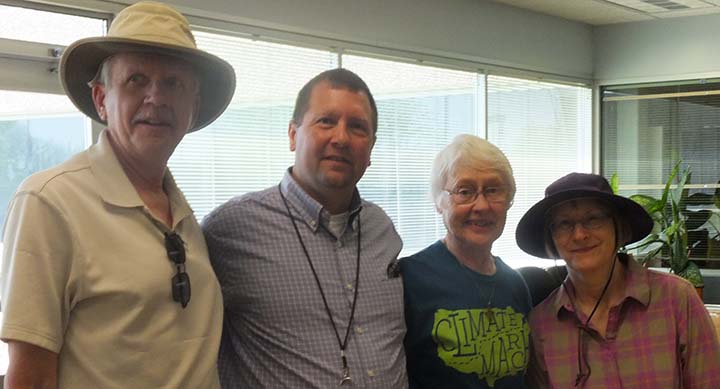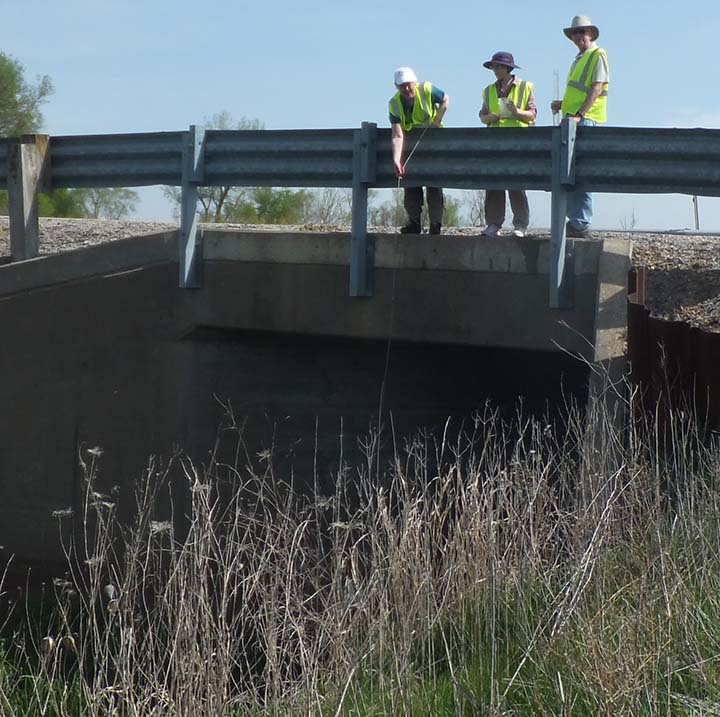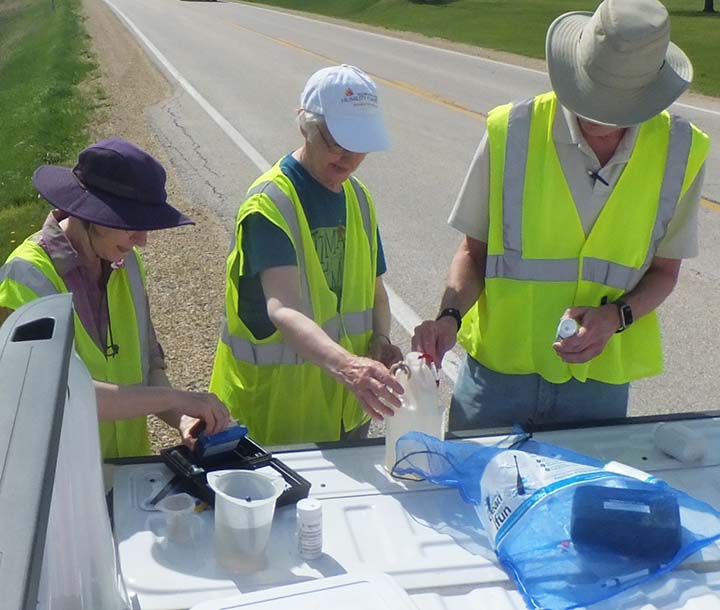Sister Gives Water a Test
 Photo l-r: Mike Wilcox, volunteer, Scott Boose, trainer, Sister Kathleen Henneberry, CHM, volunteer and Alice Traylor, volunteer.
Photo l-r: Mike Wilcox, volunteer, Scott Boose, trainer, Sister Kathleen Henneberry, CHM, volunteer and Alice Traylor, volunteer.
"We commit ourselves as individuals, and as a congregation, to work for justice within the human family and care of Earth itself." As a member of the Congregation of the Humility of Mary I take our mission statement seriously. I am very concerned about the pollution in the lakes, streams and rivers of Iowa. It has reached a crisis level. Decades of over application of fertilizer has created a dead zone in the Gulf of Mexico and has reached hazardous levels in Iowa. On Tuesday, May 8, 2018, I joined several volunteer teams to help during the "Scott County Snapshot Water Quality Monitoring Event" coordinated by Nahant Marsh and Partners of Scott County Watersheds (PSCW).
 My team included Scott Boose, an employee of the Natural Resource Conservation Service. Scott also helped to train all volunteers before we went to six creeks in the Le Claire and Princeton, Iowa, area.
My team included Scott Boose, an employee of the Natural Resource Conservation Service. Scott also helped to train all volunteers before we went to six creeks in the Le Claire and Princeton, Iowa, area.
 We tested for transparency, temperature, pH, Nitrite-N, dissolved oxygen, phosphate and chloride. One sample was sent to the lab to look for bacteria. One of the sites had only 6% oxygen when it should be about 12%.
We tested for transparency, temperature, pH, Nitrite-N, dissolved oxygen, phosphate and chloride. One sample was sent to the lab to look for bacteria. One of the sites had only 6% oxygen when it should be about 12%.
As of January 2016 the Iowa Department of Natural Resources discontinued the water monitoring program so Scott County relies on local funding to supply the materials and volunteers necessary for these important tests. I learned about volunteering for this important activity through our local Progressive Action for the Common Good (PACG) organization.
Photos: #2) The team collecting a water sample. #3) The team testing a water sample.
From the PSCW website: "Twice a year, PSCW organizes the Scott County Snapshot Water Quality Monitoring Event. PSCW facilitates over 30 volunteers to monitor Scott County streams, rivers, lakes, and wetlands. Volunteers monitor 56 sites for transparency, water temperature, pH, Nitrite, Nitrate, Dissolved Oxygen, Phosphate, and Chloride. Volunteers also gather samples to be sent into a lab for bacteria testing and make observations about activities and land uses surrounding the water body. The event engages residents in water quality through a user friendly process for data collection. Also, the collected data provides a “snapshot” of the water quality conditions in Scott County. Additional monitoring will be conducted as part of the Duck Creek Watershed Project.
Links of interest..